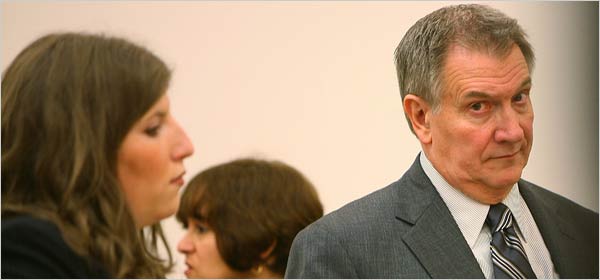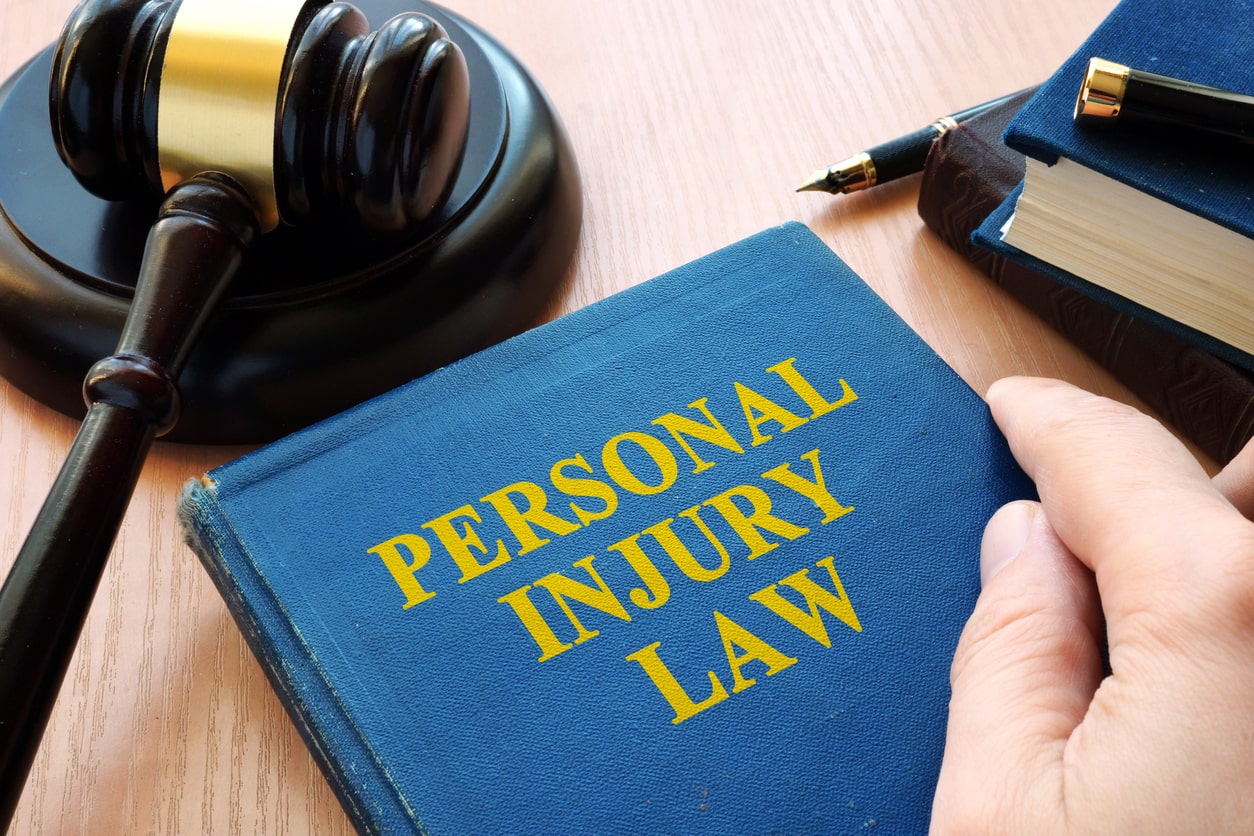Revisiting The 1971 Unity Day Shooting Of Joe Colombo And Its Aftermath
Colombo mobster-FBI top echelon informer Greg Scarpa has long been suspected of a role in the shooting of Joe Colombo by the victim’s relatives and crime family associates, Gang Land was told by several sources who read our August 7 column, The Storied Columbus Day Shooting Of Joe Colombo Was An Inside Job.
“Scarpa being involved has been floating around for a while,” said a California attorney who has done extensive research on the 1971 shooting. “With good reason. He was in Columbus Circle that day. So was Anthony Villano, Scarpa’s first FBI handler; So was (his successor) Lin DeVecchio. All three of them were there that day and it casts a dark shadow over what happened.”
During an exclusive on-the-record interview, the lawyer stated that Colombo “was aware” Scarpawas an FBI informer and had “a remedy in place to rectify that” when the mob boss was shot by Jerome Johnson, who was immediately killed by Colombo bodyguard Philip (Chubby) Rossillo. The FBI and NYPD knew Rossillo had killed Johnson, but never charged him with the murder to stifle any investigation into who hired Johnson to shoot Colombo, the attorney told Gang Land.
The attorney, a criminal lawyer based in San Diego since 2002, is Anthony Colombo Jr., a grandson of the late Mafia boss who contacted Gang Land about the upcoming book Prime Target, which credits Scarpa with orchestrating the shooting of Colombo over fears his mob boss was going to whack him for being an FBI informer.
“I thought there was a lot of truth in the article about Scarpa’s involvement but I had some issues with it,” said Colombo. “I would have appreciated a researched book with an index rather than a non-fiction narrative” approach that author Alan Taglianetti used in Prime Target, The Assassination of Joe Colombo.
A graduate of Pace Law School, Colombo said he felt he “needed to stand on my own two feet so I got as far away as I could from New York,” where he didn’t think he would “get a fair shake” because of his last name.
“It was either San Diego or Alaska, I chose the sun,” he said.
Despite living and working 3,000 miles away, Colombo has remained very connected to his family, his New York roots, and the 54-year-old shooting of his grandfather.
“I don’t think that Scarpa had a direct role the way Taglianetti stated,” he said. “I have been told that my grandfather had become aware that Scarpa had been an informer for the FBI by then and that there was likely a remedy in place to rectify that, that Scarpa got wind of it, and informed the FBI and this was the chattel the FBI needed to eliminate my grandfather.”
That scenario would have given “Nixon and J. Edgar Hoover a chance to say that not only is this guy becoming a pain to us politically, now he’s a threat to eliminate our top echelon informant, someone who’s been invaluable to us over a significant period of time,” Colombo said.
“You can’t understand why the powers that be in the status quo wanted to get rid of my grandfather unless you really understand what was happening on the streets in terms of the protests and the grass roots movement that he inspired,” he said.
“When you look at it, my grandfather had power, and financing and influence, and they didn’t want sort of a supercharged Martin Luther King of Italian ethnicity” creating problems on the streets as well as the courts, he said. “I have done a lot of investigation on this. It has had a profound impact on my family.”
He freely admits he believes that for more than 50 years, law enforcement has used the mainstream New York media “to push a false narrative to impugn the motives of my grandfather, to stain the Italian American Civil Rights League and undermine the many successes it had in a very short period of time, say it was a hoax, and worse, to say that it was a money grab.”
“To say the League was a mere ‘hoax’ and was used as a tool to raise revenue for organized crime. while at the same time to deter law enforcement investigation into organized crime, is absolutely unequivocally nothing other than a false narrative perpetuated by law enforcement to vilify my grandfather and de-legitimize the League,” Colombo argues.
“While my grandfather has been condemned and dismissed for his involvement with organized crime,” Colombo stated, “this myopic view and critique lack a full context, and to me, is an injustice. Like many leaders who make their mark on history, my grandfather was complicated, flawed.”
Colombo noted that FBI documents and other sources show that “in 1966 my grandfather was the originator and financier of Americans of Italian Descent (AID),” which is detailed in a new book by UCLA professor Jeffrey Louis Decker, The Rebel Girl And The Godfather.
Colombo stated that his grandmother and his father, who died in 2017, had both told him that his “grandfather knew he was not the right person to be the permanent front man for the League” and had planned to step down after the 1971 Unity Day rally.
He noted that Scarpa had told the FBI that 30 minutes before Colombo was shot, he had told Scarpa that the 1971 rally was his “swan song.”
During the Rise Of The New Dons, a History Channel show that aired last year, retired FBI agent Jim Nelson stated he and other FBI agents were monitoring the Unity Day rally from the 13th floor of the Gulf & Western building.
“One of my squad mates had a camera, I had binoculars,” he said. “We were all watching.”
They saw Johnson shoot Colombo before he was apprehended moments later by dozens of cops and then watched in amazement as Chubby Rossillo shot and killed the gunman — and then somehow managed to escape through the swarming crowd.
“He crawled under the cops legs, got his gun and shot Jerome Johnson in the head, killing him,” Nelson said. “And get this. He got away. With 25 cops there. He got away. Police investigated him but were never able to get enough to charge him.”
Asked why the FBI didn’t arrest him, Nelson said: “Murder’s not a federal crime” and “we had to back off.” Asked what about the photographs? “We gave them all to the New York City Police Department.”
“There was a female with Johnson, our photos showed,” Nelson said, recalling that “all they had to do was go where Jerome Johnson lived, and show photos of them. I don’t know what the police did, but to my knowledge they never found out who she was.”
The agent’s reason for not prosecuting Rossillo was “laughable,” said Colombo.
“If Chubby was a mob boss bodyguard and killed someone to protect his boss, the FBI would have jurisdiction,” he said. “If Chubby shot someone during a civil rights rally, the FBI would have jurisdiction,” he continued. “And again, if the FBI didn’t have investigative jurisdiction what were they doing there filming everything anyway?”
“Here is the truth,” Colombo said. “Chubby got a pass on shooting Johnson, because the government needed a pass on shooting my grandfather. We know Johnson pulled the trigger, but who pulled the strings of the triggerman? That was the truth that had to be buried,” Colombo continued.
“A prosecution of Chubby would have triggered extensive discovery obligations. The government was not prepared for this to happen. Chubby got the pass.”
Colombo noted that “Johnson’s autopsy and death certificate would have to be produced, potentially showing multiple calibers or trajectories inconsistent with the lone-gunman story.” The “FBI’s film and photographs” and all the “event footage” and the FBI photo of “Johnson’s accomplice, the young Black female, would have to be identified and examined under oath,” he said.
“Officers and agents on the scene, including the one who rode with Johnson and reported him speaking in the ambulance, would have to testify,” Colombo said. As would Scarpa, Villano and DeVecchio.
“The FBI’s ‘no jurisdiction’ claim would be dismantled by any judge familiar with the FBI’s organized-crime and civil-rights mandates. The NYPD’s domestic-intelligence footage would have to be produced.”
“No case” meant “no discovery,” Colombo said. “And no discovery was the only way to keep sealed the evidence that could expose multiple shooters, federal foreknowledge, or a truth about Johnson’s fate that does not match the official story.”
Colombo added that Johnson was in a closed casket at his wake, and his family was told not to attend the funeral. That left him wondering: “Did Johnson even die that day? If he didn’t,” Colombo said, that would explain why Rossillo wasn’t prosecuted for murder. “Chubby could only be prosecuted for attempted murder, but if he was then it would have to be revealed Johnson survived,” he said.
“And if it was known Johnson survived, well then there would be a lot of people interested in speaking with him. What might he have said?”
Colombo is still investigating the case and plans to use the Freedom Of Information Act and other legal tactics to get answers to all his questions about his grandfather’s shooting and its aftermath.
He’s only 51, so Gang Land expects he’ll be seeking out information from officials at numerous agencies for at last a few more years about the June 28, 1971 shooting of his grandfather.





There are no comments